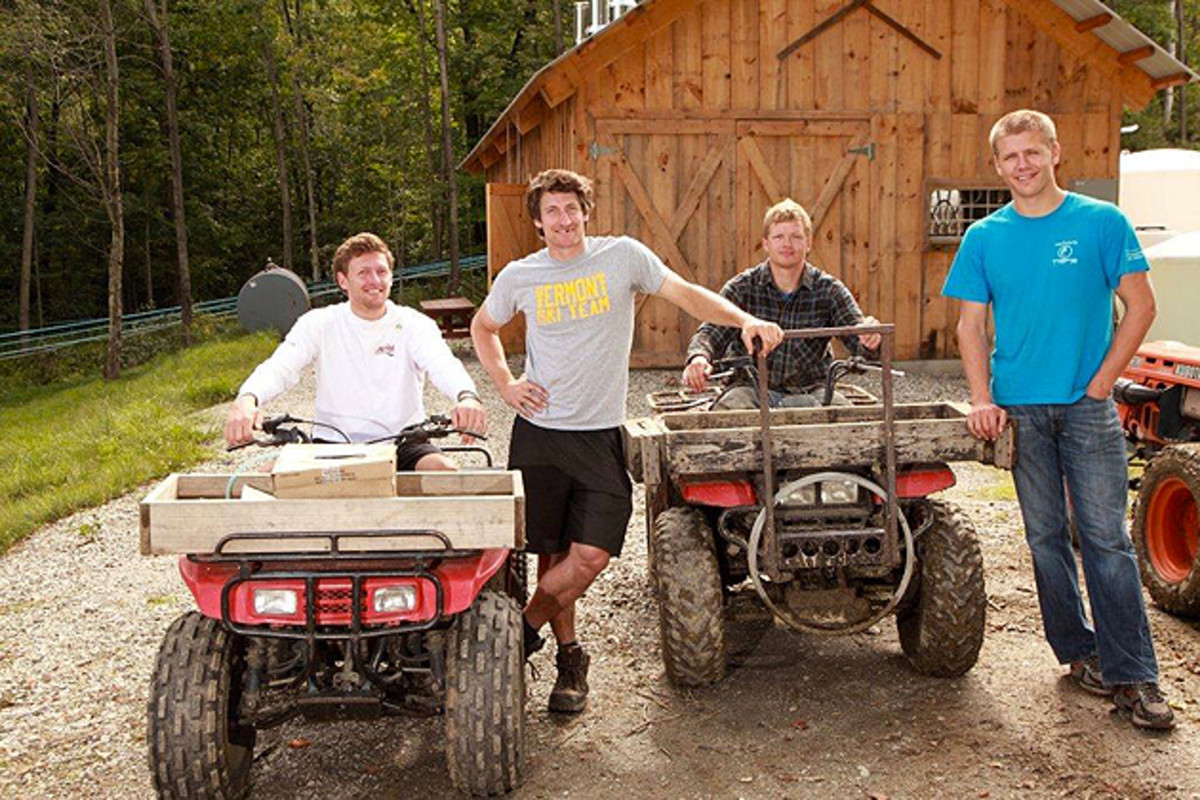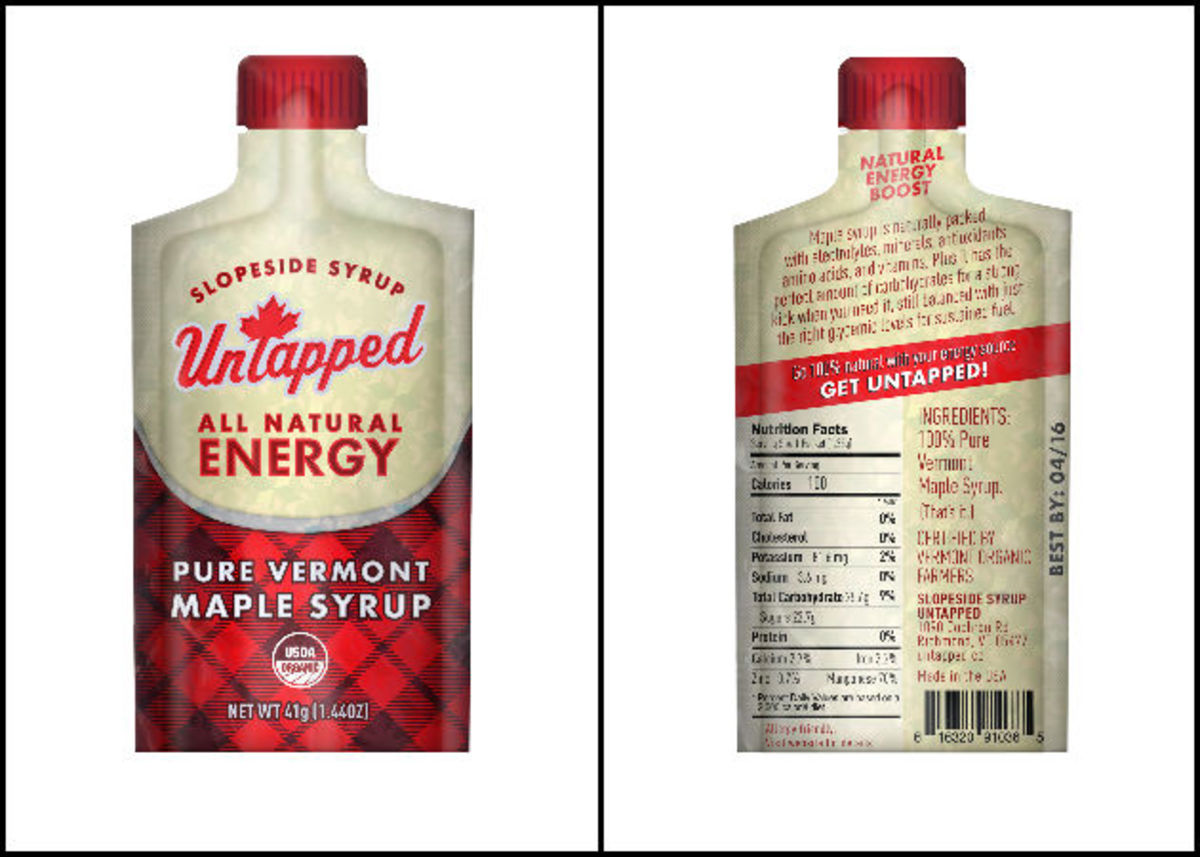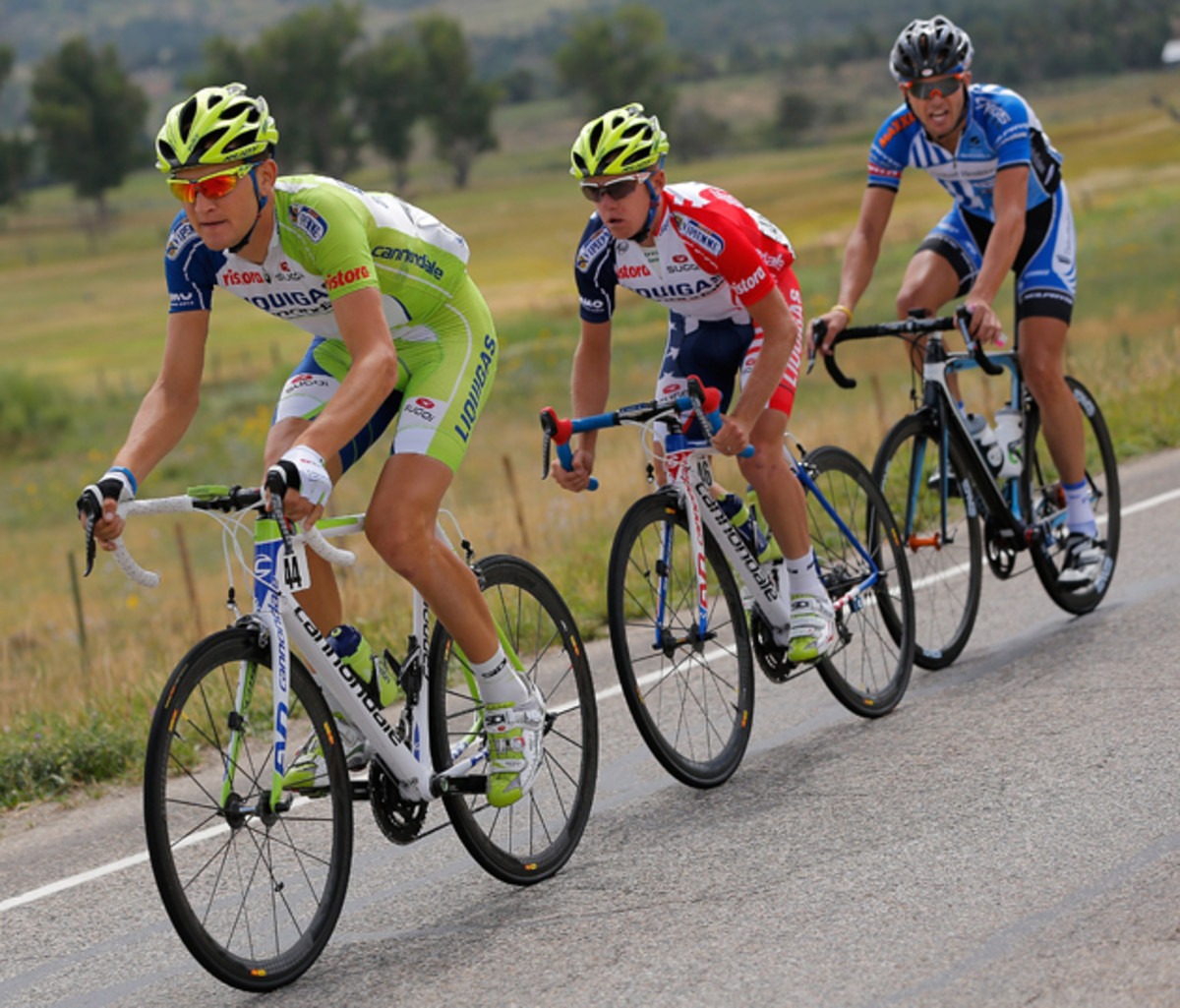UnTapped: Maple syrup as the new source of fuel in the sports world

The story of UnTapped begins in Vermont.
Of course it does. UnTapped is a startup that proposes to package maple syrup in plaid-patterned packets as portable sports fuel. It is the joint brainchild of a pro cyclist who grew up playing hockey and didn’t race bikes until he got to Middlebury, some third-generation members of American skiing’s royal family and a PR guru who used to coach Nordic at Midd. How could this story start anywhere other than Vermont?
The story of UnTapped begins with Tim Johnson bonking. This unto itself is notable: Johnson is a six-time U.S. national cyclo-cross champion, former World Championship silver medalist and, scarcely a month after that fateful summer afternoon, winner of the 2012 Green Mountain Stage Race in (where else?) Vermont. But at that moment, on July 28, he was hurting. Big-time. On a ride with his buddies, no less.
Inside LeBron James' weight loss and low-carb diet
Granted, these weren’t just any buddies—at the head of the group was Ted King, a Cannondale (then Liquigas-Cannondale) rider on the UCI WorldTour circuit with two Giro d’Italia finishes to his credit and two Tour de France appearances in his future. And granted, this wasn’t just any ride—this was a 207.2-mile, 10-hour west-east Odyssey that might make Homer wonder what was so special about the one he always told people about. Calling it “200 Not on 100”(as opposed to 2011’s 200 on 100), King and Johnson organized the expedition in part to fundraise for the Colorado Red Cross, but also because, well, because. “It’s not a typical training ride that anyone would ever do,” explains King, before amending, “Anyone who is sane.” Straight through the heart of New England, the route climbs and falls and climbs again as it snakes along the highways from Burlington, Vt., to South Portland, Maine.

Together, the distance, the difficulty of the ascents and a tough training camp he had just finished took their toll on Johnson. And nothing he did seemed to help. “I was eating as if I were on any other training ride, and I just kept feeling worse and worse,” he recalls.
Then, at the top of the Kancamagus Pass in New Hampshire, salvation came in a most unlikely form: novelty maple syrup bottles from a family that had been following King, Johnson, their friend Ryan Kelly and other local riders along the way. Unconventional? Sure. Didn’t matter to Johnson. “I was ready for anything to try and feel a little bit better,” says Johnson. “So I cracked open a bottle and just glugged the thing down.” Strangely enough, the tapped-from-a-tree-and-boiled-down sap gave Tim what water, sports drink and peanut butter-fluff-and-speculoos sandwiches hadn’t—new life. “Lo and behold, a half hour later, he has all the energy in the world for the rest of the ride,” says King. First intrigued, then enthused, the other riders gave it a try. Again, the effect was immediate.
Hungry Huskers: Nebraska tries eating its way to the top
Of those on the day’s all-but-endless excursion, it was King (who possesses a keenmarketingsensibility that pairs well with his 2005 economics degree from Middlebury) whose interest was piqued the most. As a native of New Hampshire, he’d been drizzling maple syrup on pre-ride pancakes and oatmeal for a while; now, he was inspired to research the sweet stuff further. What he found convinced him that “one ingredient from a tree” contained all the nutrients necessary to be viable on-the-go sports fuel. He began using maple syrup on training rides, carrying along small log cabin or maple leaf-shaped bottles from local retailers, but there was a practical limit to his usage. “You don’t want to have a giant glass container in your back pocket when racing,” remarks King.

Among those with whom King shared his discovery while out biking was Andrew Gardner, an acquaintance who had followed along during 200 Not on 100 who found the syrup’s effects on him to be “unbelievable.” At the time, Gardner was transitioning out of his job as Nordic coach at Middlebury to start Press Forward, a PR firm. Inspired, he saw an opportunity and connected Ted to the guys at Slopeside Syrup.
Slopeside is not your typical maple syrup company. It was founded in 2010 by four grandchildren of Mickey and Ginny Cochran, the forebears of the renowned “Skiing Cochran” family that has produced five Olympians across three generations. (“They don’t fit the typical archetype of a grizzled old Vermonter making maple syrup,” says Gardner.) Slopeside operates on the original land that Mickey bought in 1961 to set up Cochran Ski Area, with around 20,000 maple trees dotting the hilly landscape. “We started making maple syrup basically because it was there,” says Roger Brown, a Slopeside founder and roommate of Andrew Gardner’s brother-in-law at Dartmouth, where Brown was a national slalom champ in 2002. And the Slopeside team, like King, were believers in maple syrup as an energy booster. “When we’re working in the woods, we always have some syrup with us,” says Brown.
Sincere testimonials aside, it’s worth noting that when it comes to quick mid-exercise refueling, maple syrup is not a pair of PF Flyers in a pouch. “Carbohydrate is carbohydrate,” explains Monique Ryan, a nutrition expert who has consulted with multiple pro sports teams and written a book on the subject. “Maple syrup is not necessarily superior to gels, but it’s certainly worthy of consideration.” Like King, though, Ryan believes the simplicity of maple syrup’s internal architecture might be UnTapped’s biggest strength, especially for athletes who have food allergies or are simply part of a growing number who, as Ryan puts it, “want products that are ‘more natural.’”

Whatever the reason, early indicators suggest UnTapped may appeal to a previously, ahem, untapped market. Last month, the Cochrans and King officially launched a crowdfunding campaign intended to raise $35,000 of startup funds in 60 days. The venture picked up steam at an accelerated rate, though—Gardner describes the response as “overwhelming”—and reached its goal on August 5. The first orders of the 41-gram, 100-calorie packs, which look like a flannel-wrapped syrup jug, will ship in the next eight to 14 weeks.
The long-term goal of UnTapped, of course, is to sell syrup and make money. But King envisions the brand playing an educational role as well. “Part of this is my trying to teach everybody that maple syrup is not what you find in a bottle of Aunt Jemima,” says King.
Brown agrees. “I don’t want to be presumptuous, but I think we’re repping New England a little bit,” he says. “Maple is a very Vermont thing.”
